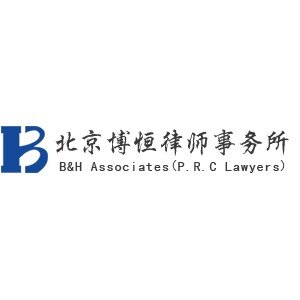Best Equity Capital Markets Lawyers in Beijing
Share your needs with us, get contacted by law firms.
Free. Takes 2 min.
List of the best lawyers in Beijing, China
About Equity Capital Markets Law in Beijing, China
Equity Capital Markets (ECM) involve raising capital through the issuance of shares or other equity instruments, including initial public offerings (IPOs), follow-on offerings, and private placements. In Beijing, the financial and regulatory heart of China, ECM activities are closely monitored and regulated to ensure orderly market conduct, protect investor interests, and facilitate efficient capital formation for businesses. The regulatory landscape is largely shaped by national authorities, with regional implementation and oversight procedures in the capital. Major stock exchanges such as the Shanghai Stock Exchange (SSE), Shenzhen Stock Exchange (SZSE), and the Beijing Stock Exchange (BSE) play important roles, with the BSE in particular targeting innovative small and medium-sized enterprises in the Beijing region.
Why You May Need a Lawyer
Navigating Equity Capital Markets in Beijing is complex and involves significant legal considerations. You may require a lawyer for several reasons, such as:
- Advising on compliance with complex securities laws and regulations
- Preparing and reviewing offering documents, prospectuses, and disclosures
- Structuring IPOs, follow-on offerings, or private placements
- Interacting with regulatory authorities including the China Securities Regulatory Commission (CSRC)
- Conducting due diligence and managing risk in cross-border transactions
- Resolving disputes related to corporate governance or shareholder rights
- Ensuring compliance with foreign investment restrictions and currency controls
- Assisting with listing on new boards such as the Beijing Stock Exchange
Given the high stakes and regulatory complexity, early legal advice can help prevent costly missteps and ensure your ECM activities proceed smoothly.
Local Laws Overview
Several key laws and regulations govern Equity Capital Markets in Beijing, including:
- Securities Law of the People’s Republic of China - The main statute governing public offerings, securities trading, disclosure requirements, and market conduct.
- Company Law of the PRC - Sets out corporate structuring, governance, and capital requirements for public and private companies.
- Measures for the Administration of Initial Public Offerings - Regulate IPO procedures, eligibility, and application processes.
- CSRC Regulations - The regulator establishes detailed requirements for disclosure, reporting, market conduct, and investor protection.
- Foreign Investment Laws - Impact ECM transactions involving foreign shareholders or overseas listings, including restrictions on foreign ownership in certain industries.
- Stock Exchange Rules - Each exchange (SSE, SZSE, BSE) has detailed listing, trading, and ongoing compliance requirements.
Laws are updated regularly and enforcement is robust, emphasizing transparency, investor protection, and maintaining market order. Activities are also affected by broader government policy on capital markets and economic growth.
Frequently Asked Questions
What is an IPO and how is it regulated in Beijing?
An Initial Public Offering (IPO) is the process by which a private company offers shares to the public for the first time. In Beijing, IPOs are primarily regulated by the CSRC and must comply with the Securities Law, Company Law, and specific regulations of the selected stock exchange.
Who is eligible to list shares on the Beijing Stock Exchange?
Companies that are innovative, growing small and medium-sized enterprises may qualify for listing on the Beijing Stock Exchange. They must meet financial thresholds, governance standards, and disclosure requirements set by the BSE and CSRC.
What legal documents are required for an equity offering in China?
Typical documents include a prospectus, legal opinions, corporate resolutions, auditor's reports, and other filings as required by the CSRC and the relevant exchange.
How does the CSRC supervise equity capital markets transactions?
The CSRC reviews offering documents, monitors market conduct, investigates suspicious activities, and enforces rules regarding disclosure, eligibility, and investor protection.
Can foreign companies raise equity through Chinese capital markets?
Foreign companies may access Chinese capital markets under certain conditions. They must comply with both foreign investment laws and securities regulations, and may face restrictions based on the industry and type of offering.
Are there restrictions on the transfer of shares?
Yes, there are lock-up periods, insider trading restrictions, and requirements based on share class. Public companies must also adhere to stock exchange rules on share transfers.
What ongoing obligations does a listed company have?
Listed companies must meet continuous disclosure requirements, report material events, publish periodic financial statements, and comply with corporate governance standards.
What is the liability for false or misleading disclosure?
Directors, senior managers, and responsible parties can face civil, administrative, and criminal liability for failing to disclose material information or for false statements in public filings.
What are the common risks in ECM transactions?
Risks include regulatory non-compliance, market volatility, shareholder disputes, inadequate disclosure, and challenges in cross-border or multi-currency transactions.
How long does it typically take to complete an IPO in Beijing?
The process can take many months due to regulatory reviews, required audits, approvals, and market timing considerations. Advance legal preparation can help expedite this process.
Additional Resources
For more information or official guidance, consider consulting the following resources:
- China Securities Regulatory Commission (CSRC) - The national regulator of capital markets
- Beijing Stock Exchange (BSE) - Information on listings and market rules for companies in Beijing
- All China Lawyers Association - Directory of qualified securities law practitioners
- Shanghai and Shenzhen Stock Exchanges - For reference on broader national markets
- China Association for Public Companies - Guidance and best practices for listed companies
- Ministry of Commerce (MOFCOM) - For foreign investment considerations
Next Steps
If you are considering raising capital through equity markets in Beijing, or require legal advice on an ECM transaction, here are recommended steps:
- Define your business objectives and determine the most suitable type of equity issuance
- Consult with a qualified lawyer experienced in securities law and ECM transactions
- Prepare necessary documentation, including company financials, legal opinions, and disclosures
- Engage with relevant regulatory bodies and stock exchanges early in the process
- Conduct internal legal and financial due diligence
- Establish appropriate governance and compliance frameworks to meet ongoing obligations
- Plan for post-listing compliance and investor communications
Early professional guidance is key to minimizing risks and ensuring your capital market activities are legally compliant and strategically successful.
Lawzana helps you find the best lawyers and law firms in Beijing through a curated and pre-screened list of qualified legal professionals. Our platform offers rankings and detailed profiles of attorneys and law firms, allowing you to compare based on practice areas, including Equity Capital Markets, experience, and client feedback.
Each profile includes a description of the firm's areas of practice, client reviews, team members and partners, year of establishment, spoken languages, office locations, contact information, social media presence, and any published articles or resources. Most firms on our platform speak English and are experienced in both local and international legal matters.
Get a quote from top-rated law firms in Beijing, China — quickly, securely, and without unnecessary hassle.
Disclaimer:
The information provided on this page is for general informational purposes only and does not constitute legal advice. While we strive to ensure the accuracy and relevance of the content, legal information may change over time, and interpretations of the law can vary. You should always consult with a qualified legal professional for advice specific to your situation.
We disclaim all liability for actions taken or not taken based on the content of this page. If you believe any information is incorrect or outdated, please contact us, and we will review and update it where appropriate.















